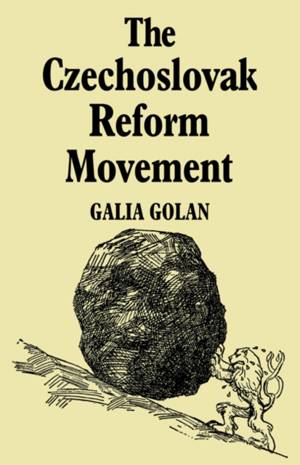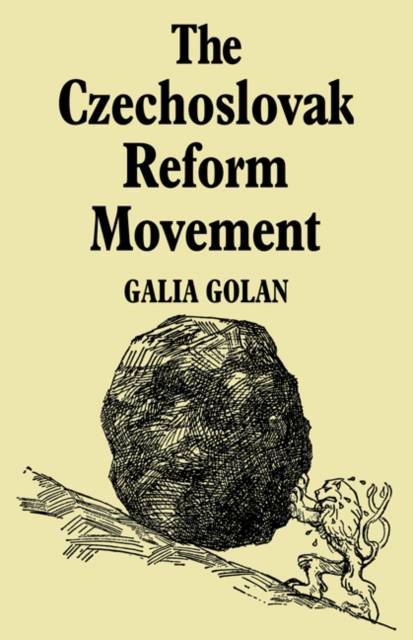
- Afhalen na 1 uur in een winkel met voorraad
- Gratis thuislevering in België vanaf € 30
- Ruim aanbod met 7 miljoen producten
- Afhalen na 1 uur in een winkel met voorraad
- Gratis thuislevering in België vanaf € 30
- Ruim aanbod met 7 miljoen producten
Zoeken
Omschrijving
In 1968 the Czechoslovak Communist Party undertook an experiment which might well have rejuvenated and inspired the prospects for Communism at least in the Western world. This `Prague Spring' was but the climax of a long, intensive struggle waged within the Czechoslovak party and society since 1956 and, most consistently, since the decision of the 12th Congress of the Czechoslovak Communist Party to instigate 'de-Stalinization' in December 1962. The struggle itself became a powerful movement for reform, winding its way inexorably throughout the Czechoslovak party and society in the years 1962 to 1968. Galia Golan traces this struggle in every sphere of Czechoslovak society - the economy, the mass organizations, the cultural world, the government, the minorities, the realm of idelogy - from its early victories over the conservative Communist leadership in 1962-3, through its ascent to power and conversion to a mass movement in 1968 until its suppression on 21 August 1968.
Specificaties
Betrokkenen
- Auteur(s):
- Uitgeverij:
Inhoud
- Aantal bladzijden:
- 360
- Taal:
- Engels
- Reeks:
- Reeksnummer:
- nr. 6
Eigenschappen
- Productcode (EAN):
- 9780521085694
- Verschijningsdatum:
- 14/10/2008
- Uitvoering:
- Paperback
- Formaat:
- Trade paperback (VS)
- Afmetingen:
- 140 mm x 216 mm
- Gewicht:
- 458 g

Alleen bij Standaard Boekhandel
+ 135 punten op je klantenkaart van Standaard Boekhandel
Beoordelingen
We publiceren alleen reviews die voldoen aan de voorwaarden voor reviews. Bekijk onze voorwaarden voor reviews.











